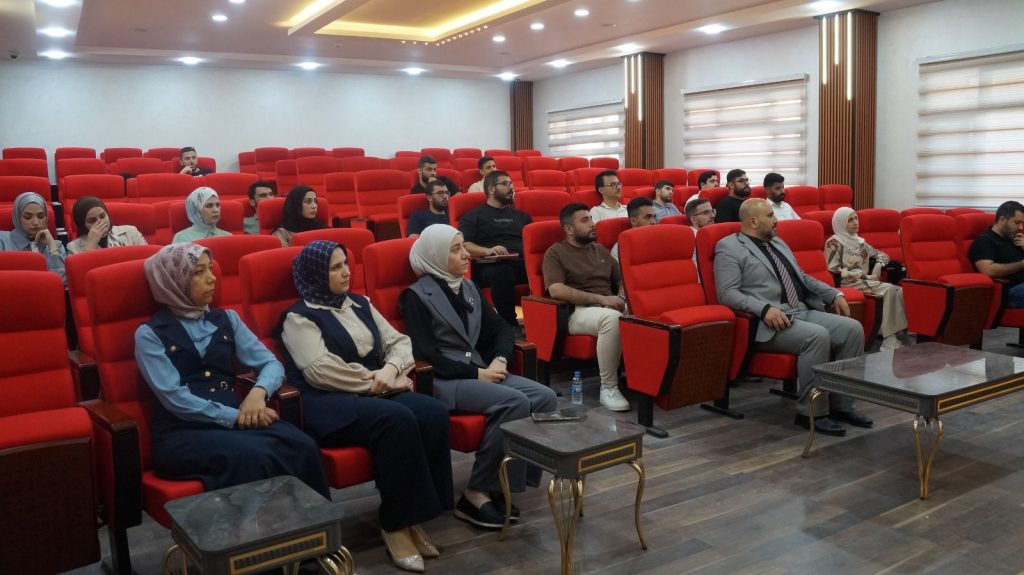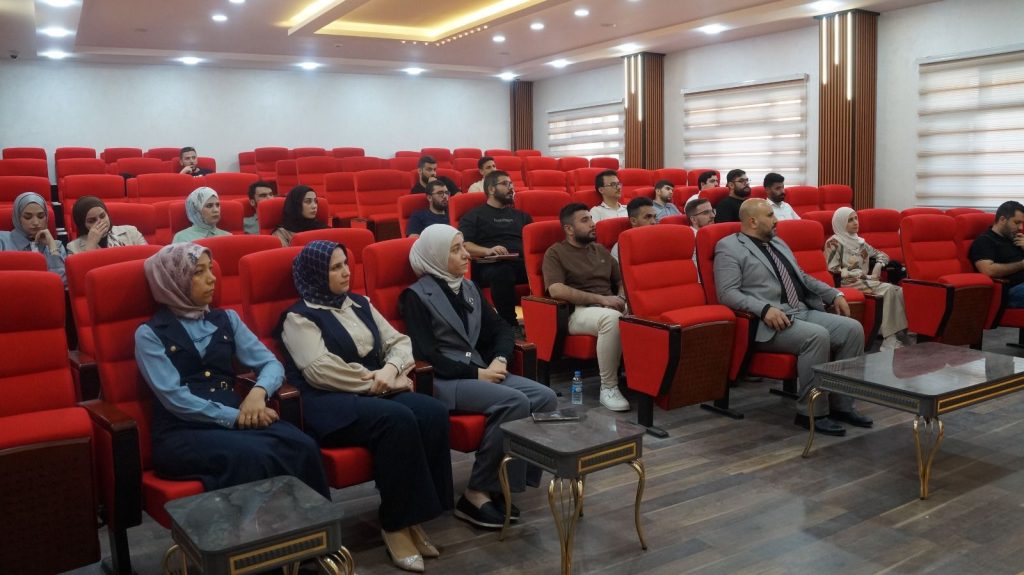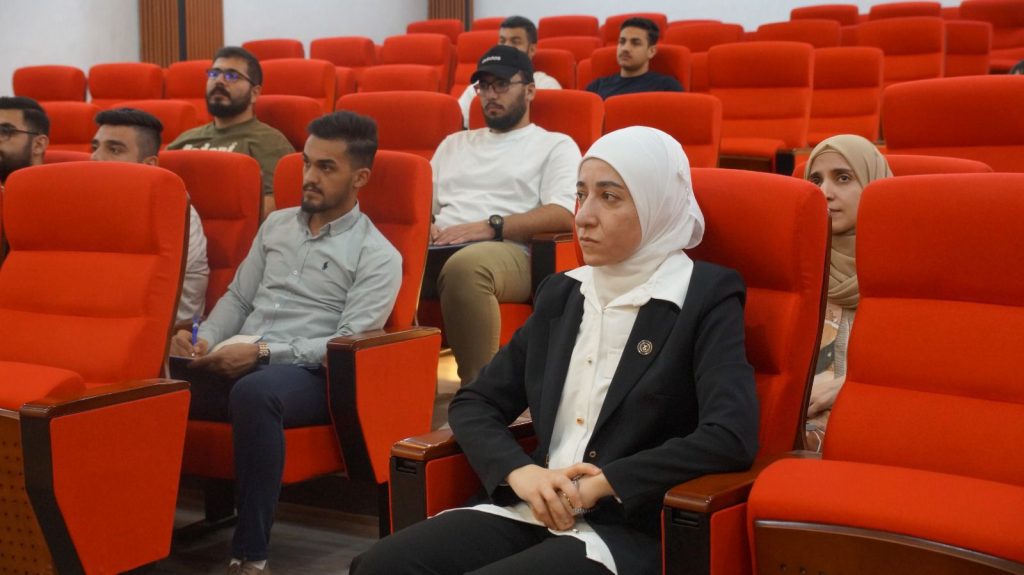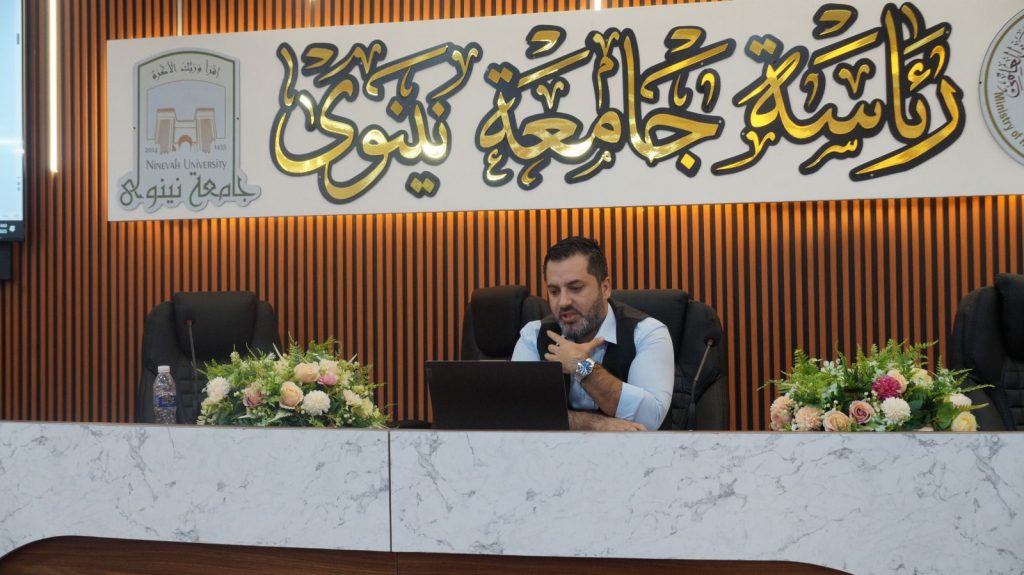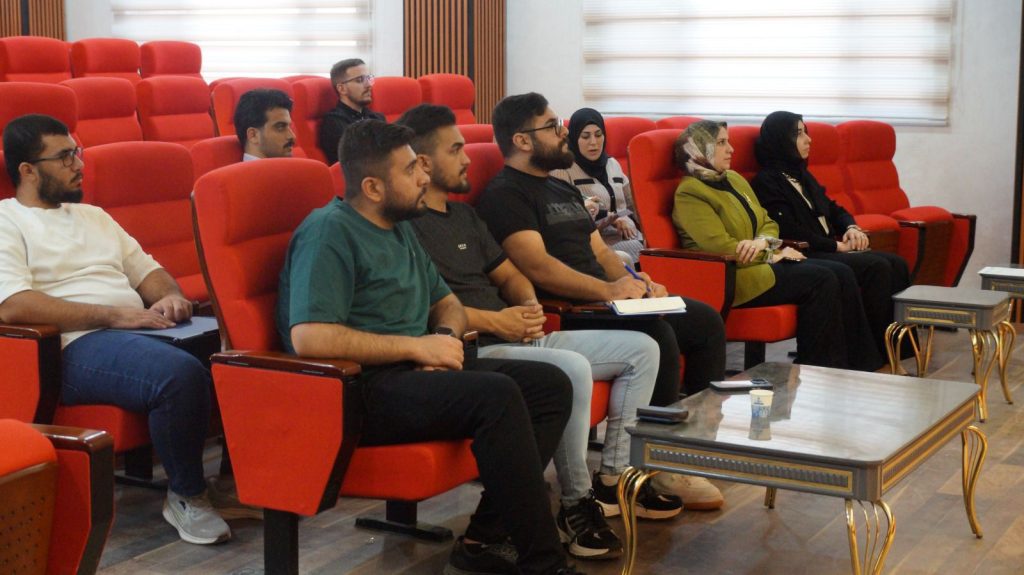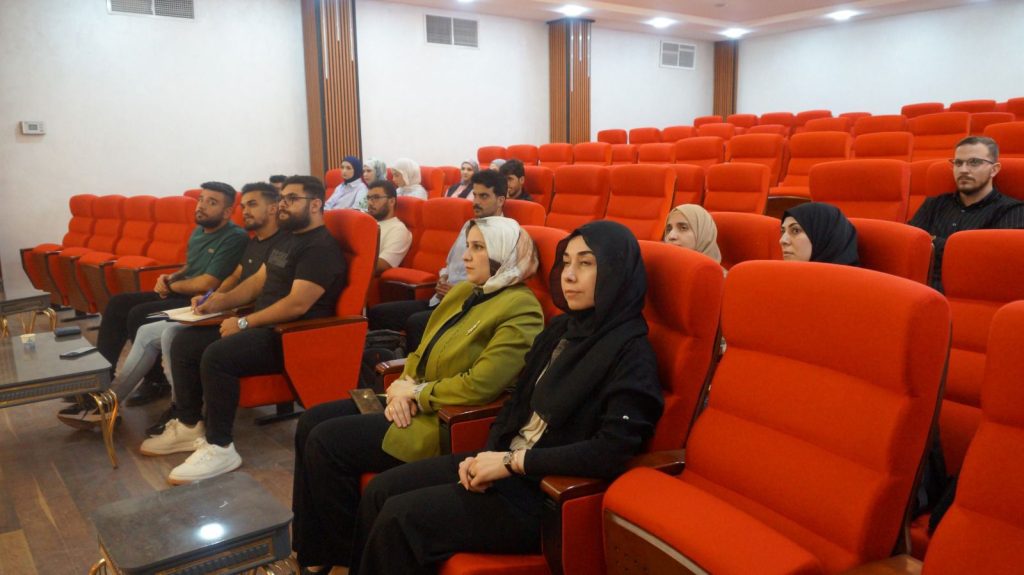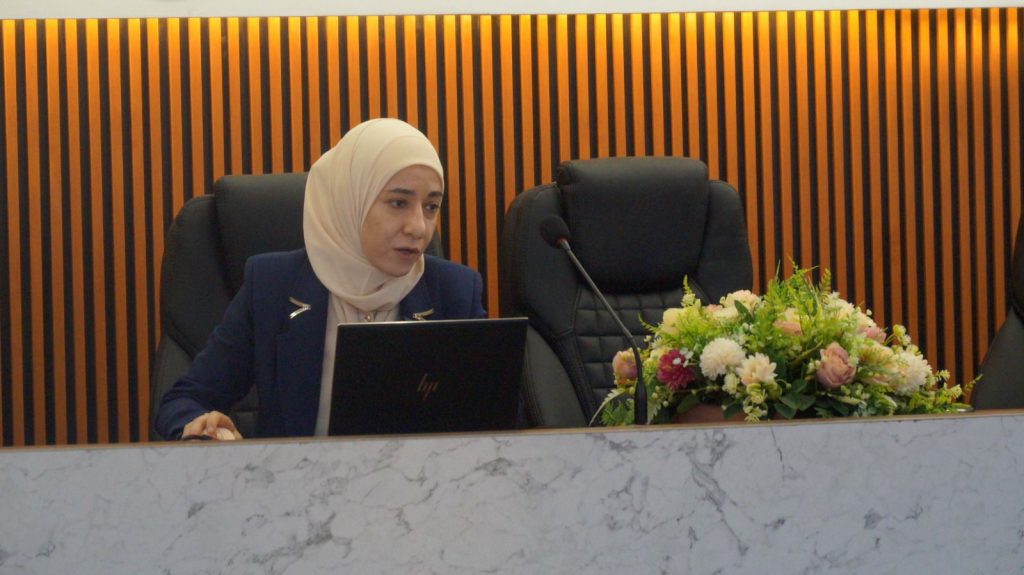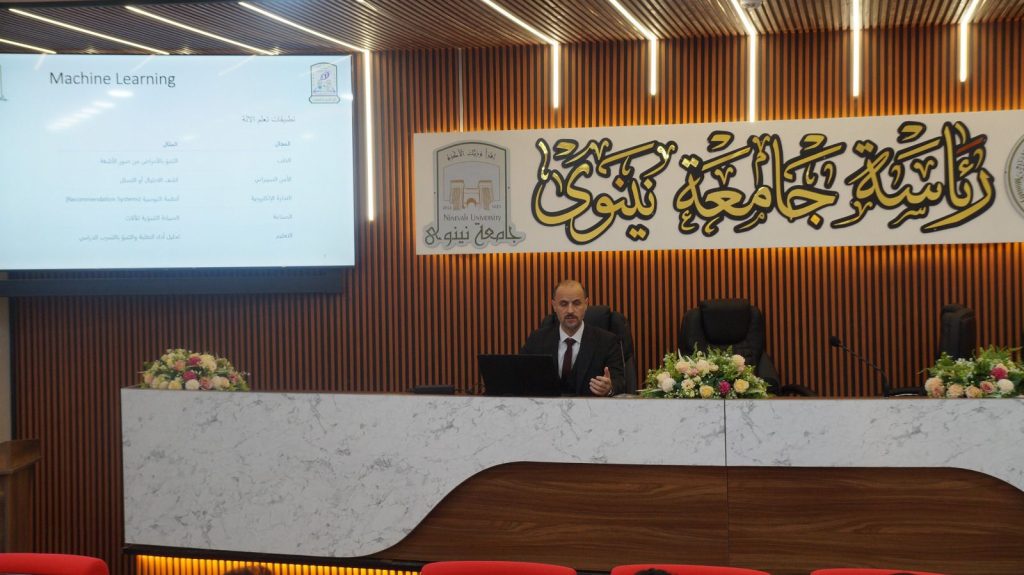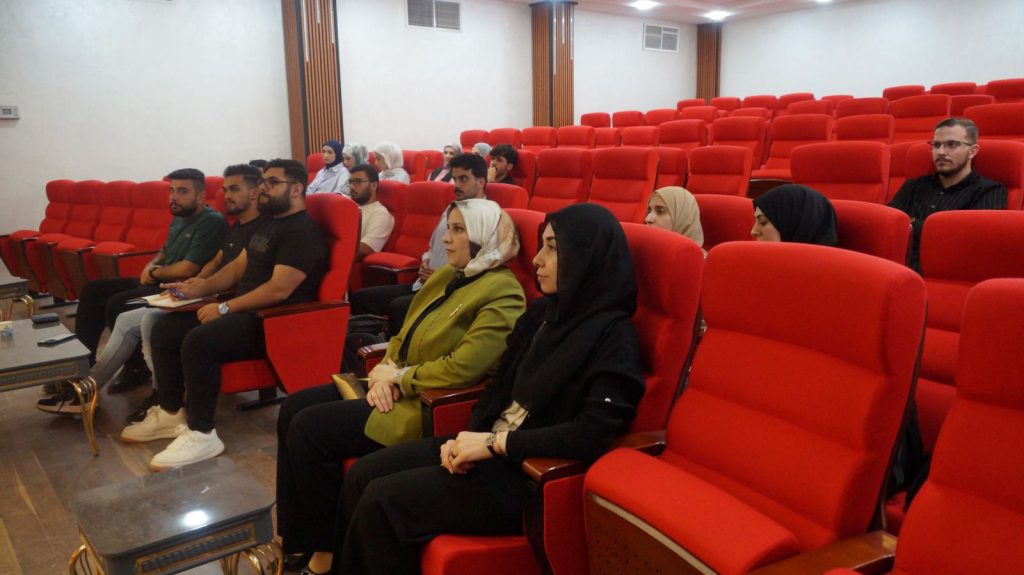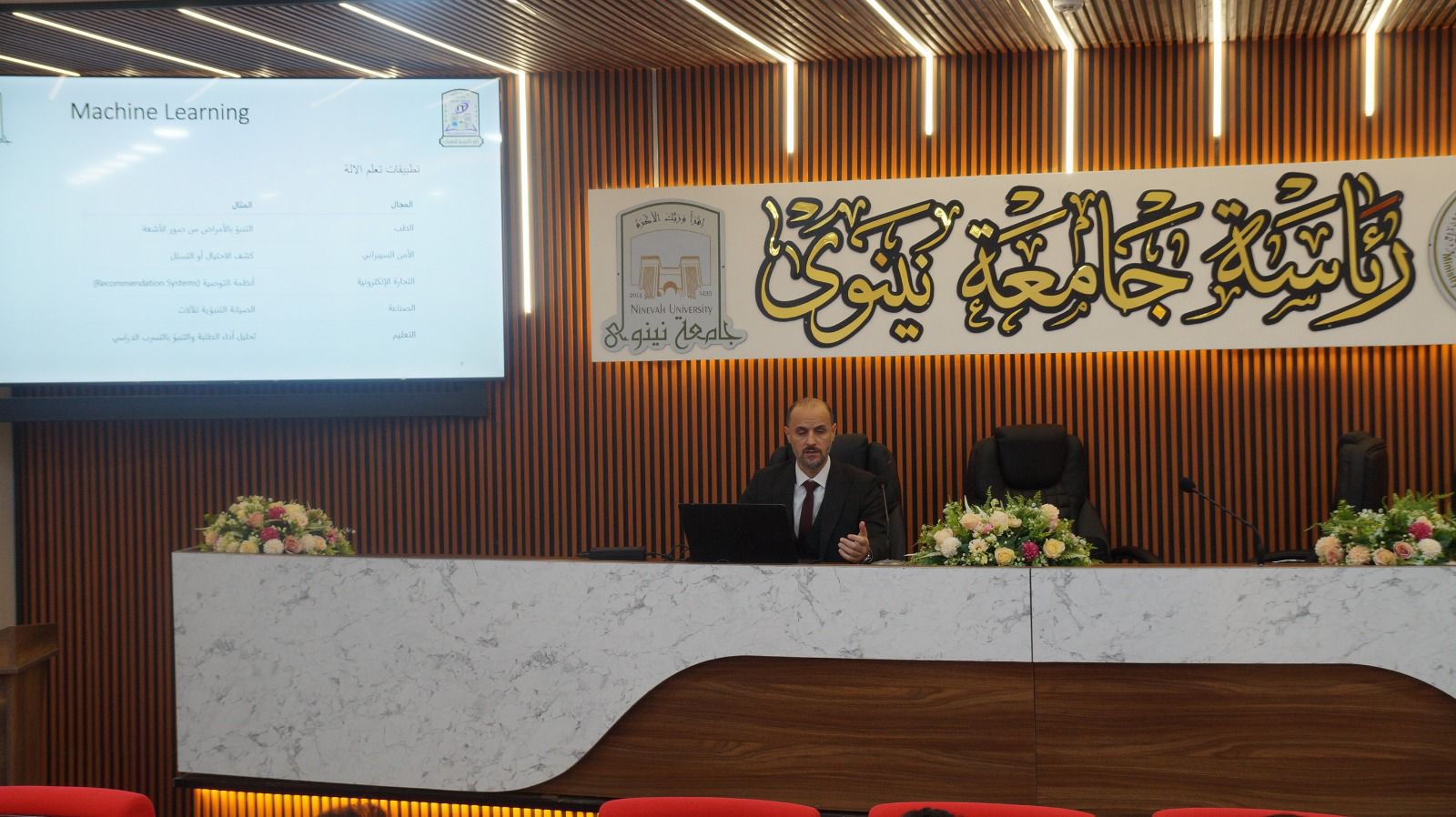As part of the continuing education programs at the College of Information Technology, a practical training course entitled “Machine Learning Using Python: Data Processing, Model Building, Evaluation, and Deployment” was organized and presented by Asst. Prof. Dr. Ali Mohsen Ahmed, Dr. Zaid Jasim Mohammed, and Dr. Balqees Talal Hassan.
The three-day course, which began on October 20, 2025, aimed to provide participants with a comprehensive understanding of the stages of building a machine learning model—from fundamental theoretical concepts to practical implementation and deployment. It also sought to develop participants’ skills in data analysis and preprocessing, model construction using modern artificial intelligence libraries, and performance evaluation based on precise statistical metrics.
The course also aimed to enhance participants’ ability to transform scientific models into practical, usable applications in real-world fields such as lung disease and diabetes detection—thus promoting the use of machine learning technologies to serve the community and improve quality of life.
The course covered integrated topics encompassing all stages of building a machine learning model—from the foundation stage to deployment. It began with an introductory overview of the core concepts of machine learning, its types, and the differences between traditional learning and machine learning. The next part focused on data preparation and preprocessing, including data cleaning, handling missing and outlier values, and transforming data into learnable formats.
Participants then explored model building using the Scikit-learn library through implementing classification and prediction algorithms and comparing their performance. This was followed by a module on model evaluation and results analysis using statistical measures to assess efficiency and accuracy.
The course concluded with a practical deployment module, where two applied projects were presented:
1. An Android application for lung disease detection.
2. A web-based system for diabetes detection using the Flask framework.
This course is part of a series of scientific activities organized by the College of Information Technology in its ongoing efforts to develop students’ and researchers’ skills in artificial intelligence and machine learning. It aims to enhance their ability to apply academic knowledge in innovative practical projects that serve the community and contribute to keeping pace with global technological advancements.
